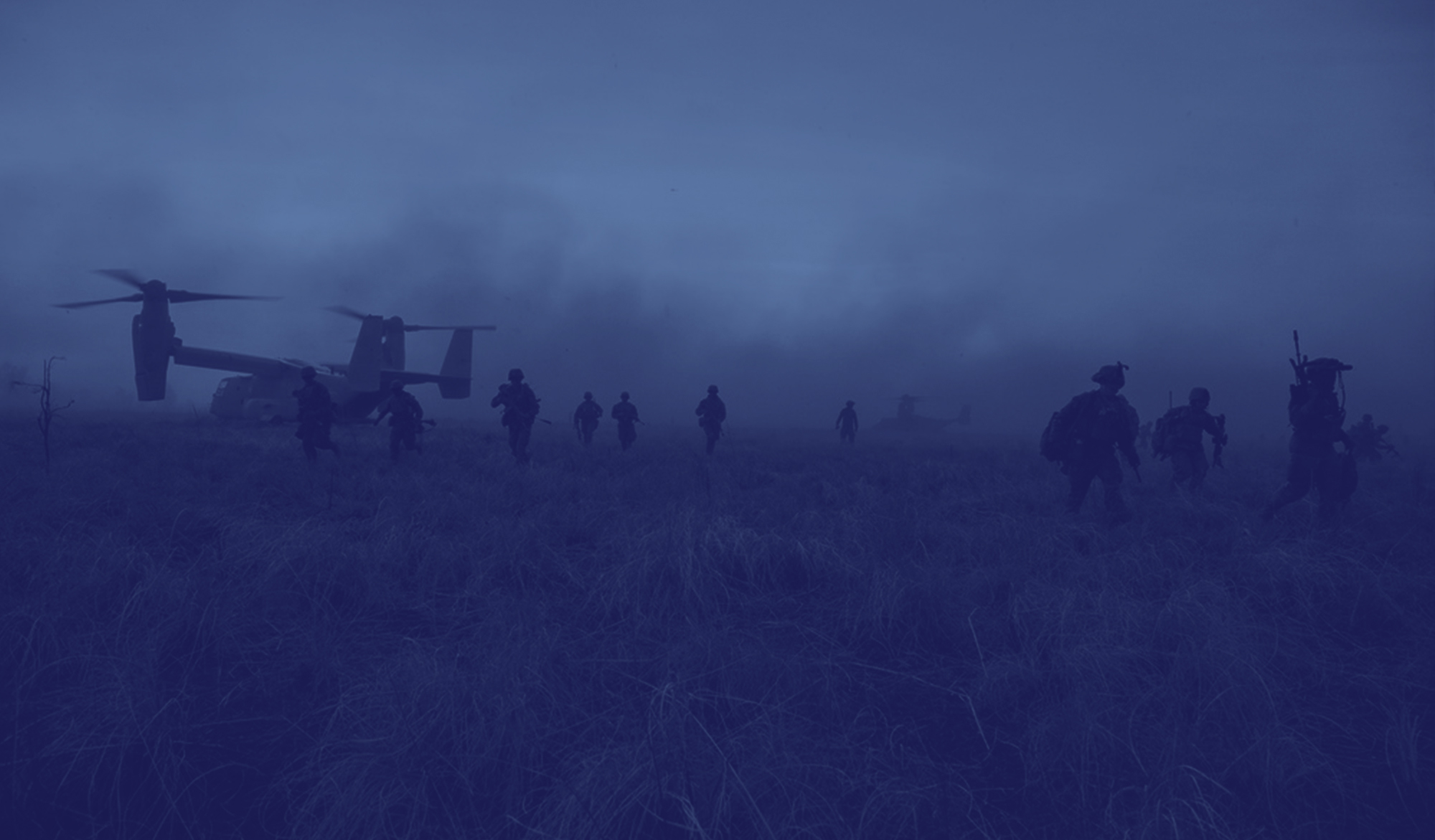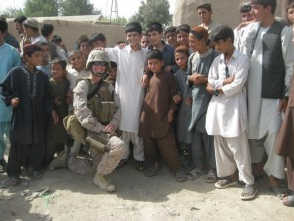Lt. Col. Diana Staneszewski is a Western woman who communicates with Afghans in their native tongue, bridging the language barrier and gaining the trust of the locals she encounters on patrol.
Job/Position Title: Communications Officer/ AFPAK Hand assigned in Regional Command South to the Kandahar Provincial Reconstruction Team in support of the 411th Civil Affairs Battalion
Unit: Afghanistan Pakistan Hands Program
Hometown: Balboa, former Panama Canal Zone
Time in Service: 19 Years
What is your job?
As an AFPAK hand I have language familiarization in Pashto and Cultural Awareness training. My job is to engage the people of Afghanistan in line with the Commander of the International Security Assistance Force’s Counter Insurgency (COIN) Strategy.
How long have you been a part of that mission?
My language training took place from Nov 2, 2009 – Mar 5, 2010, followed by pre-deployment training. I arrived in Kabul May 8, 2010, attended the COIN Academy, did 24 days of language immersion and then arrived at the Kandahar PRT at the end of June. I have been employed at the PRT/411th CA BN for over 3 weeks.
Why was the Female Engagement Program started?
There is no female engagement program in RC South (or North, East, West, or Central). The Marines in RC Southwest have Engagement Teams of female Marines who talk to men and women. These are known as FETs (Female Engagement Teams) but they are not limited to talking to females. Female Engagement Program is a misnomer. In Afghanistan, we need females who can go out into the community and talk to the population. Men can only talk to 49% of the population. I can engage 100% of the population as a woman. (That is why more women need to be recruited into AFPAK Hands.) I go out on foot patrols and engage everyone that I see. I am a team of one. I talk to men and children on every patrol. I have had the chance to knock on a few doors and get myself invited into homes to talk to women and children but without a female interpreter I can only gather a cursory level of information such as women’s perception of security and their government.
What success have you had so far and how do you define success with this mission?
I have been able to engage of few households and have returned for visits. Eventually I will find a village and befriend the village elders and develop a relationship with them. I have a sub district in Kandahar where I am currently focusing. When I win the elders’ trust, which takes many visits and cups of tea, I will be able to ask for permission to speak to the women and see what I can do to improve the lives for everyone in the village. So as you see there is no Female Engagement Program since no one can talk to females but another female and I am the only non-Afghan at the Kandahar Provincial Reconstruction Team/411th CA BN who can speak a little Pashto. I will one day be able to talk to the women of the village with a male interpreter, but only when I develop solid relationships with the men.
What challenges have you faced with this mission?
My only challenge is learning more Pashto to become more effective when engaging the population.
What lessons have you learned in doing this job?
I have learned that I am a walking Public Relations magnet. As a Western woman who speaks Pashto I have blown more Afghan minds than you can imagine. I have been outside the wire 3 times a week for the last 4 weeks. Everywhere I go I am constantly invited to have tea with the men, and the boys and girls flock to me. Here is an example. I walk out on patrol with the men. I see a group of men in a little store. They ignore the entire patrol. I walk up say hello, how are you, my name is “Moskaa” (my Pashto name which means smile, it is written on my helmet and is on my Outer Tactical Vest on a patch) and then everyone’s jaws drop. The first question I get is where did I learn my Pashto? The second question is where am I from? I always joke and say I am Kandahari, and then say I am joking I am American. The Afghans get the joke and smile. Then I keep speaking, asking and answering questions and soon they tell me “yes” you are Kandahari you are not American. Now, I accomplish all this with my minimal Pashto familiarization, a smile, and a little personality. I know it helps that I have my hair in a ponytail and I am wearing rings on my hands so they can identify me as a woman and it is obvious to them that I am very different from all the men in the group.
I then say goodbye, as the patrol has to keep moving. On the way back on the foot patrol the men I spoke with earlier recognize me, call me by my name and say Moskaa, you are back, come and have tea with us. Every time I return from patrol the Canadian and American soldiers tell me, “Geez ma’am, you were such a hit. Every time we go out you always attract a crowd.” I have had upwards of 30-40 men, boys and girls fascinated by this woman who speaks their language. They are respectful of me as I tell them I am an officer, and a Marine, all in Pashto. I have yet to have a negative encounter anywhere. I don’t even know what that is. The people of Afghanistan are the friendliest, most hospitable people in the world.
Everyone told me to be careful talking to Afghan men because they don’t like Western women who are bold. Well as soon as I start speaking whatever look they had on their face turns into a smile and the more I speak the more I draw their interest and attention. I walked by a park and 3 young males I would say in their early 20’s were eating lunch on a blanket and having tea. In full battle rattle surrounded by a patrol I said, “hello, how are you, how is your picnic?” in Pashto. They immediately said, “it is good come sit down with us and have tea.” Who would have thought that with all of these insurgents around and the fear of Afghans being associated with Westerners that 3 males would ask me to join them. Of course, the patrol must move on and I tell them thank you, but I have to go to a meeting.
On other patrols, I have stopped random men walking by our patrol and said hello and again have been immediately invited over to have tea. I say hello to every single Afghan I pass wherever I go and I shake all of the kids hands and most of the men’s hands as well. One little boy kissed my hand and I immediately got down on one knee and kissed his. On another patrol, six men were sitting at a stand having watermelon and I stopped to inquire how business was going. Again, jaws were dropping and the wide-eyed look of amazement is priceless. Of course the patrol has to keep going. When we returned on the same road they called out Moskaa, you are back, come sit down and have tea with us. So I walk over to chitchat for a minute and ask the eldest man how he is doing and he proceeds to show me his artificial leg and tell me the story of how he lost it. Of course I tell him how sorry I am. Who would expect to have stories like this after going out on patrol? I could spend the entire day drinking tea and meeting new people. To me it is a chance to speak to the heart of the Afghan people.
As one Afghan man told me, and I will never forget this, he said:
“When you learn the language of the Afghan people, you are able to see into their hearts.
What is the first lesson you learned when you joined the military?
The first lesson I learned is that when you need something, you must always use your Chain of Command. Taking short cuts to get the job done faster is not in line with how the military as an organization works.
What lessons have stayed with you throughout your time in the military?
That education both in my Military Occupational Specialty and in my Tactical skills is continuous.

